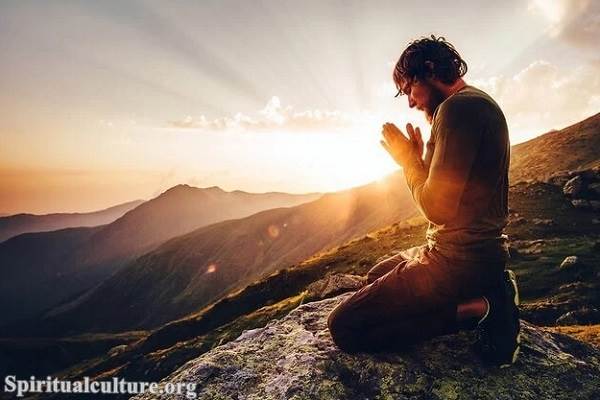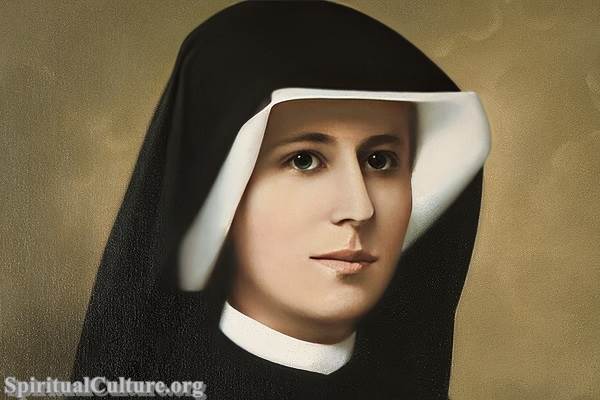The cry for justice. The longing for dignity. The question of life’s worth.
All these stir the soul — and all find their answer in a truth the Catholic Church has never ceased to proclaim: Human life is sacred. Not because of what we do, but because of who we are.
As Spiritual Culture, we invite you to explore this profound truth — one that challenges modern assumptions, confronts silent injustices, and uplifts the weakest among us. In this article, we will walk through the heart of Catholic teaching on the sanctity of life — from Scripture to moral theology, from conception to natural death — and discover why this vision is not only doctrinal, but deeply human.
The Foundation of Catholic Teaching: Life Is a Gift
Human Life Begins with God
At the heart of Catholic belief is the conviction that life is not a product, not a possession, but a gift from God.
“Before I formed you in the womb, I knew you.” — Jeremiah 1:5
The human person is not an accident or a byproduct of biology. We are created, willed into being by a loving God. From the moment of conception, each human life is imbued with a soul — bearing the image and likeness of the Creator (Genesis 1:27).
To deny the sanctity of any human life is to forget its source. In God’s eyes, life is not measured by age, ability, or social status. It is sacred because it is His.
The Soul and Dignity of the Person
Catholic anthropology sees the human being as a unity of body and soul. This soul is spiritual and immortal, making each person a subject of infinite worth.
The Catechism of the Catholic Church teaches:
“Human life must be respected and protected absolutely from the moment of conception.” (CCC 2270)
This is not mere sentiment — it is moral vision. It calls us to defend life not only when it is easy, but especially when it is vulnerable.
From Conception to Natural Death: The Consistent Ethic of Life
The Unborn: Dignity in the Womb
From its earliest stages, life is deserving of protection. Abortion, from the Catholic perspective, is a grave moral evil because it directly ends innocent human life.
Pope St. John Paul II, in Evangelium Vitae (“The Gospel of Life”), wrote:
“The human being is to be respected and treated as a person from the moment of conception.” (EV 60)
This does not mean ignoring the struggles of women in crisis pregnancies — rather, it means supporting both mother and child with compassionate care, recognizing the dignity of both.
The Sick and Elderly: Dignity Beyond Utility
Catholic teaching also speaks clearly against euthanasia and assisted suicide, which falsely suggest that some lives are no longer worth living.
“Even the weakest and most vulnerable, the sick, the old, the unborn and the poor, are masterpieces of God’s creation.” — Pope Francis
Suffering does not strip a person of worth. Instead, in Christ, suffering can be redemptive. The Church calls for palliative care, not the deliberate ending of life.
The Dying: Respect for the Natural End
Catholics uphold the principle of allowing natural death to occur — without using extraordinary or disproportionate means to artificially extend life indefinitely.
This is known as ordinary vs. extraordinary care: while we must provide food, water, and basic care, we are not morally obliged to pursue aggressive treatments that only prolong suffering.
The Broader Vision: Human Life in All Forms
Beyond Birth: Defending Life in Every Context
The sanctity of life doesn’t stop at birth. Catholic teaching insists that all life, in every condition and context, matters.
This includes:
- The homeless
- Refugees and migrants
- Victims of war or capital punishment
- The poor and marginalized
In this light, pro-life does not mean only anti-abortion — it means fostering a society that reveres human dignity across all its expressions.
War, Violence, and the Death Penalty
The Church increasingly speaks out against war, especially modern warfare with civilian casualties and weapons of mass destruction. Just War Theory, long part of Catholic moral tradition, is now interpreted with extreme caution.
Pope Francis has also spoken clearly against the death penalty:
“The death penalty is inadmissible, because it is an attack on the inviolability and dignity of the person.” — Catechism of the Catholic Church 2267 (revised)
Even the guilty retain dignity. Even the criminal must not be discarded.
Sacred Texts and Traditions that Affirm Life
Scripture’s Witness
- Genesis 1:27: “God created man in His image.”
- Psalm 139:13-16: “You formed my inmost being; you knit me in my mother’s womb.”
- Luke 1:41: The unborn John the Baptist leaps in the womb of Elizabeth.
These texts are not poetic metaphors. They are sacred declarations of identity and purpose.
Saints and Martyrs Who Defended Life
- St. Gianna Beretta Molla, who chose her unborn child’s life over her own
- St. Mother Teresa, who served the poorest of the poor with unrelenting love
- Countless unnamed Christians who have shielded life in war zones, orphanages, hospitals, and homes
Their lives illuminate doctrine, showing that truth becomes powerful when lived.
The Cultural Clash: Why This Teaching Matters Today
A World That Measures Life by Utility
Today, human worth is often evaluated by productivity, autonomy, or desirability. The unborn, the disabled, the elderly — these are seen as “burdens” by some systems.
But Catholic teaching asks: What if worth comes not from what we do, but from who we are?
Technologies That Challenge Boundaries
Advances in genetics, reproductive technology, and end-of-life interventions raise new ethical questions. The Church urges discernment and caution, reminding us that not everything that is possible is also moral.
A Countercultural Witness
To stand for life — consistently, compassionately, and courageously — is to swim upstream in many societies. But it is precisely here that the Church shines.
To defend life is to stand with the forgotten. It is to say, “You are loved. You matter. You are not alone.”
What This Means for You
To believe in the sanctity of human life is not merely to hold an opinion — it is to be transformed by love.
It means:
- Welcoming every life, even when it’s inconvenient
- Supporting the poor, even when it’s costly
- Accompanying the dying, even when it hurts
- Voting and advocating for policies that protect life
- Seeing the face of Christ in every person
You may not be called to change the world overnight. But you are called to change your corner of it — one act of mercy, one moment of reverence, one voice raised for the voiceless.
Reflect and Reimagine
The Catholic vision of life is not narrow. It is expansive, beautiful, and bold. It dares to see value where others see none. It calls us to uphold life not as a slogan, but as a sacred mission.
As Spiritual Culture, we invite you to reflect:
- Do I truly see every human being as sacred?
- How do my actions reflect reverence for life?
- Where am I being called to defend the dignity of the vulnerable?
Let this truth settle deep: You were created in love. So was your neighbor. So was every unborn child, every elderly soul, every forgotten prisoner.
And because of that, life is holy. Always. Everywhere. Without exception.


